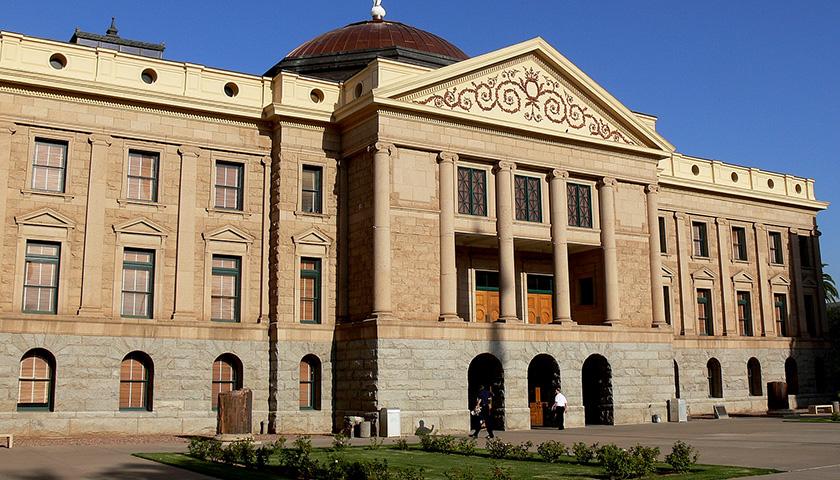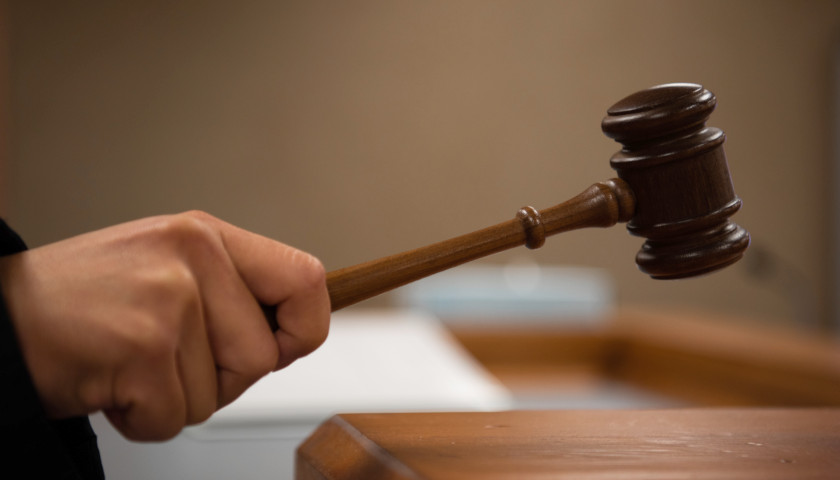Republican Abe Hamadeh, who is still contesting his election loss to Democrat Kris Mayes in the attorney general’s race by 280 votes, filed a Petition for Writ of Quo Warranto & Writ of Mandamus Civil in Maricopa County Superior Court on December 28 asking to remove Mayes from office. He also asked to purge Maricopa County’s voter registration records of any “inappropriate signatures” from vote-by-mail affidavit envelopes, void its canvass in the attorney general’s race, and either order the county to redo signature verification from the election using voters’ signatures on their voter registration or order a new election.
Hamadeh posted on X, quoting his attorney Ryan Heath, “NEW LAWSUIT FILED. Arizonans deserve JUSTICE. My legal team has filed a writ of quo warranto to remove Kris Mayes from office. ‘Kris Mayes, has usurped, intruded into or unlawfully holds or exercises the public office of Arizona’s Attorney General.’ – @Ryan_L_Heath”
🚨🚨NEW LAWSUIT FILED🚨🚨
Arizonans deserve JUSTICE.
My legal team has filed a writ of quo warranto to remove Kris Mayes from office.
“Kris Mayes, has usurped, intruded into or unlawfully holds or exercises the public office of Arizona’s Attorney General.” – @Ryan_L_Heath pic.twitter.com/kVArjcIP8J
— Abe Hamadeh (@AbrahamHamadeh) December 29, 2023
Comparing voters’ signatures on their mail-in ballot affidavits to previous signatures became a significant issue of concern after the 2020 and 2022 elections due to discovering that many signatures were approved even though they did not match voters’ earlier signatures. Maricopa County signature reviewers were observed on video approving signatures at a rate of 1, 2, or 3 seconds each, not enough time for them to scan down past the voters’ most recent signatures to their original signatures on their voter registration records.
Hamadeh’s petition stated that Mayes “has usurped, intruded into or unlawfully holds or exercises the public office of Arizona’s Attorney General.” He said he gave her written notice on December 27 pursuant to A.R.S. 12-2043(B) that he is the lawful attorney general. ”Petitioner received the highest number of legal votes in Arizona,” he asserted.
The petition explained, “This case is about the meaning of A.R.S. § 16-550(A), which governs Arizona’s signature verification process, and whether this ‘non-technical’ and nondiscretionary law that furthers Petitioner’s constitutional rights (and those of his supporters) was applied by Maricopa County in a way that is consistent with its proper meaning.”
He cited the recent decision by Yavapai Superior Court Judge John Napper in Arizona Free Enterprise Club v. Fontes. Napper ruled that not using voters’ original signatures as required by statute on their voter registrations to compare their ballot affidavit signatures to was illegal. Napper stated in his decision, denying a motion to dismiss by defendants, “Here, the langu[ag]e of the statute is clear and unambiguous. The statute requires the recorder to review the voter’s registration record.” The county used other signatures from voters instead, signatures which didn’t require accompanying photo identification.
Hamadeh added about the state’s Election Procedures Manual (EPM), “Maricopa County not only violated Arizona statutes, but also the EPM when it allegedly verified mail-in ballot affidavit signatures in the November 2022 General Election.” Violations of the EPM are a class 2 misdemeanor.
He said failing to abide by the “non-technical and nondiscretionary requirements of A.R.S. § 16-550(A)” rendered the election results “uncertain.” Previous cases have held where this type of law was violated, a new election was required. ”A.R.S. § 16-550(A) is a ‘non-technical’ statute because it advances the constitutional goal of ‘setting forth procedural safeguards to prevent undue influence, fraud, ballot tampering, and voter intimidation,’” the petition asserted, citing the Arizona Court of Appeals case Reyes v. Cuming, That case held that even substantial compliance still constitutes an abuse of discretion.
The petition quoted Miller v. Picacho Elementary Sch. Dst. No. 33, where the Arizona Supreme Court held, “election statutes are mandatory, not ‘advisory,’ or else they would not be law at all.”
The petition explained that the reason signatures on mail-in affidavits are not considered part of the voter registration record is because they do not require photo ID, unlike signatures added to the voter registration record from other methods. “[T]he EPM also allows for signatures from other documents that voters sign when registering to vote (i.e., when providing proof of citizenship) to be included in the ‘registration record,’” Hamadeh said. “For instance, the EPM allows signatures from signature rosters to be included in the ‘registration record’ because voters are required to ‘present’ enumerated information for identification purposes before signing a signature roster and casting a ballot (this includes an Arizona driver’s license issued after October 1, 1996).”
Hamadeh quoted the Arizona Constitution, Article VII §§ 7 & 12, which states in part that “the person, or persons, receiving the highest number of legal votes shall be declared elected” and “There shall be enacted registration and other laws to secure the purity of elections and guard against abuses of the elective franchise.”
In November, Hamadeh filed a lawsuit against Maricopa County demanding decertification of the 2022 election. Shelby Busch, co-founder of We the People AZ Alliance (WPAA) which has been investigating the 2022 election problems, told The Arizona Sun Times that while preparing for Hamadeh’s election lawsuit, “thousands of voters across the state who were disenfranchised from voting, many of whom never even knew their vote didn’t count. This includes people who showed up to vote and a ballot had already been received, people whose voter registrations were altered without their knowledge or consent and registered voters who didn’t even appear in the registration records.”
Busch said that although WPAA found hundreds of instances involving people who said they voted for Hamadeh but their ballots were not counted — more than the 280 votes he lost the attorney general’s race by, the courts will not consider the new evidence.
Hamadeh asked the trial court for a retrial after extensive evidence came out revealing uncounted votes for him, including undervotes in Pinal County that then-Secretary of State Ktie Hobbs did not inform him of, but Mohave Superior Court Judge Lee Jantzen refused to grant him a new trial. Hamadeh filed an appeal with the Arizona Court of Appeals in October.
Since Jantzen failed to issue a final judgment for over 60 days, Hamadeh’s attorneys asked the Arizona Supreme Court for direction. That court responded by sanctioning Hamadeh’s attorneys for stating in their pleading that they had asked Jantzen for a final ruling, but through a technical mistake the request hadn’t gone through. It is uncommon for a court to sanction attorneys for a mere technical mistake. The Arizona Supreme Court did not admonish Jantzen for his inaction, despite the fact election cases are handled in an expedited manner.
A few weeks ago, the Maricopa County Republican Committee passed a unanimous resolution calling to impeach Mayes, citing her prosecution of two Cochise County Supervisors for delaying certification of the 2022 election by three days due to concerns about election illegalities.
A poll taken in December by Rasmussen Reports found that one in five mail-in voters admitted to committing fraud in the 2020 election.
Read the full filing:
– – –
Rachel Alexander is a reporter at The Arizona Sun Times and The Star News Network. Follow Rachel on Twitter / X. Email tips to [email protected].
Photo “Abe Hamadeh” by Abe Hamadeh.





